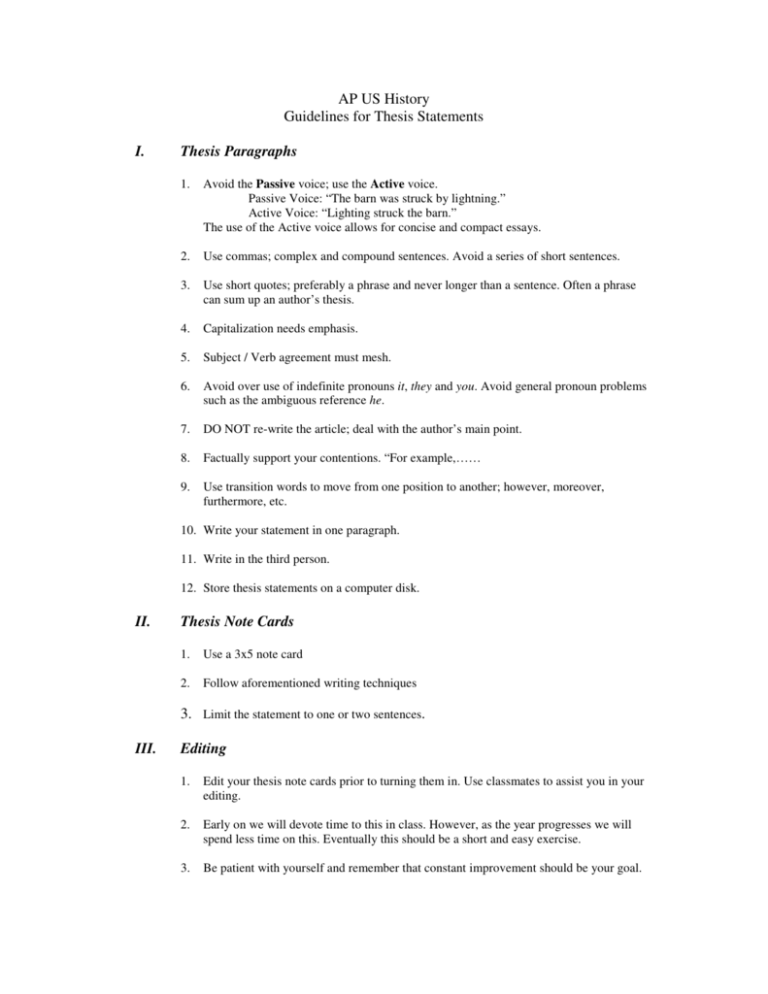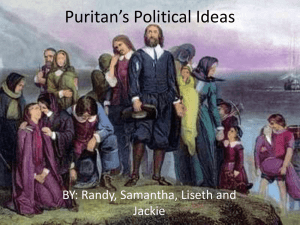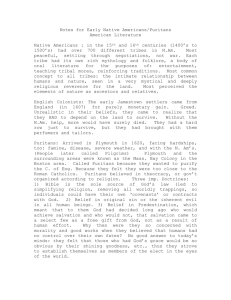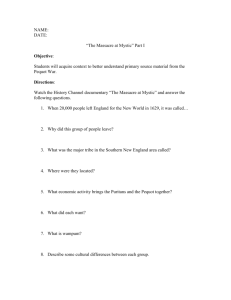AP US History Guidelines for Thesis Statements
advertisement

AP US History Guidelines for Thesis Statements I. Thesis Paragraphs 1. Avoid the Passive voice; use the Active voice. Passive Voice: “The barn was struck by lightning.” Active Voice: “Lighting struck the barn.” The use of the Active voice allows for concise and compact essays. 2. Use commas; complex and compound sentences. Avoid a series of short sentences. 3. Use short quotes; preferably a phrase and never longer than a sentence. Often a phrase can sum up an author’s thesis. 4. Capitalization needs emphasis. 5. Subject / Verb agreement must mesh. 6. Avoid over use of indefinite pronouns it, they and you. Avoid general pronoun problems such as the ambiguous reference he. 7. DO NOT re-write the article; deal with the author’s main point. 8. Factually support your contentions. “For example,…… 9. Use transition words to move from one position to another; however, moreover, furthermore, etc. 10. Write your statement in one paragraph. 11. Write in the third person. 12. Store thesis statements on a computer disk. II. Thesis Note Cards 1. Use a 3x5 note card 2. Follow aforementioned writing techniques 3. Limit the statement to one or two sentences. III. Editing 1. Edit your thesis note cards prior to turning them in. Use classmates to assist you in your editing. 2. Early on we will devote time to this in class. However, as the year progresses we will spend less time on this. Eventually this should be a short and easy exercise. 3. Be patient with yourself and remember that constant improvement should be your goal. IV. Thesis Paragraph Example: “The Puritans and Sex” by Edmund S. Morgan In his article, “The Puritans and Sex,” Edmund S. Morgan focuses on the fact that the Puritans did not view all earthly pleasures as sinful, and they realized it was within man’s nature to sin. Not only did the Puritans find no fault in sexual intercourse within marriage, they deemed it an essential part of a healthy relationship. Abstinence in marriage was never viewed as virtuous, and Samuel Willard, author of a textbook on Puritan divinity, was horrified at “that Popish conceit of the Excellency of Virginity.” As long as sex didn’t hinder one’s religion (intercourse was strictly forbidden during times of fasting) it was viewed largely as an incidental matter. Extra-marital affairs, however, were not met with such indifference because God forbid them. While strict laws were passed for the consequences of such offenses, the Puritans understood man’s sinful tendencies; therefore, cases of illicit sex were rarely greeted with the maximum penalty. To keep such cases from occurring they incorporated preventive measures to help the colonists abide by the moral code. In an attempt to reverse the trend of premarital relations, Puritan parents provided suitable spouses for their children at an early age. Once they wed, authorities insisted husbands and wives respect each other, for successful marriage was seen as the best method of combating adultery. The Puritans of the sixteenth century, contrary to current opinion, were not a perfect, sinless community. While they never justified extra-marital sex, they were capable of forgiving those who engaged in it. V. Thesis Note Card Examples: “A New Kind of Revolution” by Carl N. Degler During the latter half of the 18th Century, colonial unity, coupled with national pride, created an atmosphere of revolution in the colonies resulting in myriad grievances from social to economic to the most revolutionary of all: political. “Were the Puritans Puritanical?” by Carl N. Degler Contrary to popular belief, the 17th Century Puritans were not an obsessively religious and moral population, but rather a society focused on achieving reasonable standards through a continuous pursuit of moral education and the discovery of God’s will. VI. Finished Product: Developed Thesis Statements in Timed Essays From Louisiana to Nullification, to failed compromise, territorial expansion of the early 19th Century invigorated two conflicting views of America’s future; viewpoints and ideologies which ultimately tore the nation apart. Ultimately the sound beliefs and intentions of the 17th Century Puritans could not overshadow the ever-present blunder in their ways, frequently evidenced in their social, political and economic wrongdoing.






